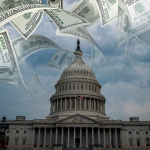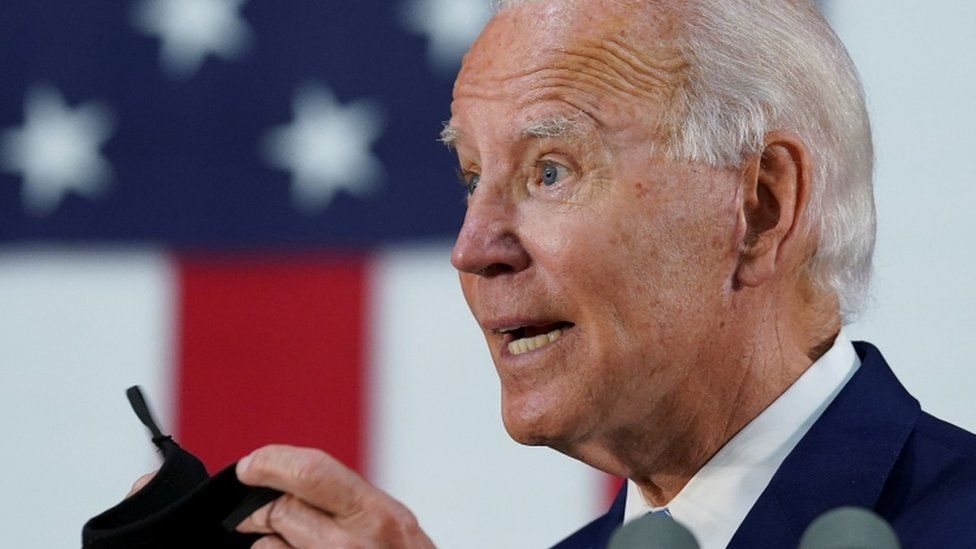President Biden has kept the media at arm’s length while being decidedly less combative than his predecessor with reporters, an approach that will be on display when he attends the White House Correspondents’ Association dinner this weekend.
While Biden has kept a contained and limited relationship with members of the White House press corps, he has also maintained a level of camaraderie and respect for the media that has drawn sharp contrast with the constant attacks former President Trump waged on the media’s credibility.
It’s an approach that administration officials say is deliberate, and that Democrats say is part of Biden’s effort to return the White House to a more normal rapport with the media.
“He likes the press, he has an appreciation for what you all do, but it’s been a bit stand-offish, intentionally so,” said one administration official.
The administration official acknowledged Biden had done fewer sit-down interviews and press conferences, but argued voters don’t care and said the president has found other ways to break through to wider audiences.
“No one is sitting there at home counting the number of interviews he’s doing,” the official said. “Could he do more? Maybe. But what he’s done has been effective.”
Saturday’s event will be the first time since 2016 that a sitting president has attended the dinner, a glitzy affair that has become a staple of the Washington political class. Trump spurned the event all four years and even banned staff from attending the last time the gathering was held.
Julian Zelizer, an American political historian at Princeton University, said Biden marking the return of a president attending the dinner is important and symbolic.
“I think by doing this, it’s a way to ingratiate himself on some level or just to show: I’m supportive of what you do, even if there’s limits on how much you’re going to hear from me,” he said.
The president may use his address at the dinner to emphasize the importance of facts and journalism in a democracy, something that could be seen as a veiled shot at Trump.
“We have the midterm elections coming up, we have a number of truth deniers on the ballot, and an important message that he can get across is that truth matters, that understanding history matters, that we have to believe in facts and not lies if we want to move forward as a country,” said Basil Smikle, a Democratic strategist and director of Hunter College’s public policy program.
Biden has lost his temper with a few reporters and on a hot mic called Fox News White House correspondent Peter Doocy a “stupid son of a bitch.”
Still, overall, he’s had a much less combative approach with the press than Trump, who constantly battled reporters.
Trump also engaged in regular lengthy and antagonistic back-and-forths with reporters in the Oval Office and on the South Lawn of the White House — while Biden has been less accessible.
The limited engagements are widely viewed as an effort by the White House to keep Biden, who can be prone to gaffes in unscripted remarks, on message.
“A president who is prone to gaffes makes fewer mistakes if he isn’t put in a position to talk to the media so that the gaffe doesn’t become the story,” Smikle said. “Tightly controlling the message means tightly controlling him as well.”
Biden has sat for major televised interviews with CBS, NBC and ABC and participated in town halls with CNN. Only two of the interviews he has done since taking office last year have been with print publications – one with New York Times columnist David Brooks and another with The Atlantic. Both interviews were conducted in the first half of last year.
Biden held a press conference in January that seemed aimed at criticism that he has allowed less access. It may also have sent a message about his stamina, as the president spent 120 minutes taking questions in what is believed to be the longest news conference in White House history.
As vice president, Biden had a different relationship with the press. Every summer at the Naval Observatory, he hosted the Biden Beach Boardwalk Bash for the press corps, frequently chasing reporters and their children with water guns. He also had frequent off-the-record chats with reporters at events and dinners where he was known to express his views on any political topic.
He would make news in interviews, including in 2012, when he expressed his support for same-sex marriage on NBC’s “Meet the Press.”
Zelizer argued that Biden can be both a pro-press president and not do many interviews, but it’s a risky balance.
“I think they can co-exist. We just came off a presidency that the press was attacked as an institution on an ongoing basis and you obviously hear nothing of that,” he said. “He’s straddling a difficult line.”
“He’s trying to be one of the presidents, at least now, who is limited on what he’s going to give to you. On the other hand, he’s trying to say he supports the press. You have to walk that line and you have to see if it reaches a point where the press say he’s too limited,” he added.
Biden’s appearance at the gathering will be all the more notable because it comes during the COVID-19 pandemic, which disrupted plans for the annual dinner the past two years. Biden has received COVID-19 vaccinations and booster doses but his age has raised some questions about his attendance at the dinner and other large gatherings. Vice President Harris tested positive for COVID-19 earlier this week and is currently working remotely from home.
Psaki said that Biden would not attend the dinner portion of the event and would likely wear a mask when not speaking, as the White House looks to limit his exposure to the virus.
Barbara Perry, director of presidential studies at the University of Virginia’s Miller Center, argued attending the dinner this year could easily work to Biden’s advantage.
“It has been such a historic time in presidential history, that a president who wouldn’t come because of his totally adversarial relationship with the press, calling them the enemy of the state, and then COVID hitting,” she said. “This is another good stage, if it’s used properly, for the president himself who is serving and also for the institution.”
Story cited here.
























